
The Post Secondary Transition Conversation
We talk about the ins and outs (and everything in between) of the secondary transition process for families of students with disabilities! Hosts Meghan (Smallwood) and Patrick (Cadigan) serve as supportive guides, leading families step-by-step up each rung of the transition ladder.
Also check out our parent website: https://www.postsecondarytransition.com
The Post Secondary Transition Conversation
017. Interview: Adult Life Planner Sarah Hammond
Hosts Megan (Smallwood) and Patrick (Cadigan) interview Sarah Hammond, who works as an Adult Life Planner (under the Autism Waiver) for a private agency. Sarah shares insights on being a resource for families, person-centered planning, aspects of the job she loves in addition to the things that keep her on her toes. Join in on the conversation!
Episode Keywords
transition, families, work, support, person-centered planning, role, parents, adult, information, services, resources, clients, waitlist, experience, autism waiver, guardianship, post-secondary
Links:
Person Centered Planning (Maryland) site
Trellis Services site
End the Wait fact sheet (pdf)
Self Directed Services page
Self-directed site (Maryland)
Acronyms & Definitions page
Adult Agency Providers Snapshot (Maryland) page
Download a transcript of the episode here.
To download a copy of a transcript for this episode or any of our previous conversations, click here.
Also visit our Podcast webpage to find links to all of our other discussions; go to www.p2transition.com.
Additional information about post-secondary transition can be found at our website.
The Post-Secondary Transition Podcast Facebook page.
Visit our YouTube Channel to find additional video resources.
Intro/Outro music by AudioCoffee from Pixabay.
Transition music by Joseph McDade from Transistor.
I just keep hitting the record button, and we keep talking. So I'm going to take that as a good thing. Welcome. We are here for P2Transition or post secondary transition where we discuss the ins and outs, and everything in between of the transition process for families of students with disabilities. My name is Patrick Cadigan. I am a public school special education teacher and I am joined by my co-host, who would that be?
Meghan Smallwood:My name is Meghan Smallwood, and I am a public school transition coordinator. And we really want to talk about what Post Secondary Transition is. I mean, it's a big topic, right? It just really focuses between ages 14 through 21, and helps to answer that question of what do you want for your child after they leave the school? We're looking to help answer that question. We're going to ask you parents to really think long term about those milestones that are ahead of you, the research that you're doing the resources that you need, and the the goals you have for your child.
Patrick Cadigan:And how do we define long term? Well, what asking yourself the question, what do you want your child to be doing after the school bus stops after the school bus stops coming? Right? So that can be different for everybody, it it can be a completely individualized experience. So along with that, along with that individuality can come loneliness. And in some cases, a sense of isolation. It really is a unique experience. But there are other families who are going through this probably at the same time you are.
Meghan Smallwood:Right. And along that journey, there's definitely milestones that you're going to need to focus on. Some of those milestones are built around timeframes, but others can be at your own timeframe. And when you're comfortable and ready to tackle them. Using your child's school experiences can really help while you're doing that research process, use the resources at your disposal, such as your school transition specialist and other teachers. That's just so imperative. It's a lot of information, there's a lot to consider. And in many cases, the answers won't always present themselves to you immediately, there might be some give and take. There will be things that you do that might not have that desired outcome, but trying to do it all at once can really feel consuming. So we're here hoping to help clear away some of that fog as you go through the process.
Patrick Cadigan:And if you were with us last week, or what was it two weeks ago now? Yeah, you of course, we did an interview, we interviewed Ms. Brodnax, who was a Coordinator of Community Service. And again, we have another interview Meghan, who're we interviewing?
Meghan Smallwood:Yes, and I'm excited for this one, because we are interviewing Sarah Hammond, who is an adult life planner for autism services. Her services are primarily through the autism waiver, but she is just a wealth of knowledge and will go down those rabbit holes to find the resources that people need for this transition process. So I am looking forward to chatting with her.
Patrick Cadigan:And so am I. So without further ado, let's go ahead and get to that interview. Okay, that I knew it. I knew something. All right. So now I sound like a normal person, at least to my to my ears. I probably didn't sound different to you guys. Alright, and I have already hit the record button. Because I decided to hit the record button to test and see where things were. So what do you want to do? Meghan, do you want to you want to start us off?
Meghan Smallwood:Okay, so we're with Sarah Hammond today. Thank you for joining us, Sarah.
Sarah Hammond:Thank you for having me.
Meghan Smallwood:Absolutely. And I think I had mentioned that you are an adult life planner, with...
Sarah Hammond:Private agency that provides adult life planning services through the autism waiver.
Meghan Smallwood:Yeah, there we go. That works. But do you mind giving a little background first on your professional life, because you didn't always start there?
Sarah Hammond:Sure, absolutely. So thanks for having me on the podcast. I've been enjoying listening to the podcast. It's a huge benefit to families to be able to have the availability of of people coming on to the podcast and being able to share information, so thanks to both of you first.
Meghan Smallwood:Thank you.
Sarah Hammond:I have worked in a variety of settings. I started out in college working in a group home, I worked in a private publicly funded school as a peer educator and as a teacher, as well as within a comprehensive high school as a work-study transition teacher. And then most recently with the agency that I currently work with that provides autism waiver services. I did work with them or have worked with them for almost 12 years now in a variety of different roles. So I've just come back to work with them full time this year as an adult life planner.
Meghan Smallwood:And what do you see, like, because I know, you know what we met because you were transition teacher. And we're same role. So, and I know we've kind of talked about this before, but now in your new role, you've kind of shifted a bit, what do you see is the biggest difference between what you were doing as a transition teacher to what you're doing now?
Sarah Hammond:Sure. So in this role, families are able to access currently up to 60 hours of adult life planning lifetime hours for their child. And usually that's broken down over a number of years between ages 16 to 21. So it's more one on one support than what would have been provided as a work study transition teacher within a public school. So with some families, I meet with them weekly, some families that's monthly, some families, it might be quarterly, it just kind of depends on where they are in the transition planning process, and how close their their child is to transition.
Meghan Smallwood:And that, that is a good point. Because I was actually wondering, Patrick and I were talking about that, when you actually start working with the individuals because I knew it was towards the time like getting closer exit. I didn't know it was 16.
Sarah Hammond:Yes, so they can start it's so adult life planning is a billable service through the Maryland autism waiver. And so families can choose to add that service to their plan of care, starting at the age of 16, or when their child turns 16.
Meghan Smallwood:So it's not required. It's just the parent can choose to do that.
Sarah Hammond:Exactly. So there are a number of different services provided through the Maryland Autism Waiver. And it's one of the services that they can access.
Meghan Smallwood:So and I know, like I said, you and I have chatted a lot. But what topics do you find you're working the most on with families as they're preparing for exit.
Sarah Hammond:It is so individually based, depending on parent background, how much experience they have with transition planning. And then you know, depending on the client's needs, so some of the students or clients that I support, are exiting with a high school diploma. And then others are exiting with a high school certificate. So it's very individually based on that client's needs, and the supports that the families might be looking for. So we do talk about adult agencies a lot during sessions and connecting to adult agencies, I can help families complete the DDA application, or apply for door support. So a lot of the supports that you've spoken about, during, you know, other podcasts and other sessions, I'm helping to connect families to those are understanding what those services are.
Meghan Smallwood:Right. And I think in your role, the like, a big difference is, you know, and I think I've mentioned this before, on our podcast, like the transition teachers kind of tied to the school system. And, you know, there's certain things that we have to do. And, you know, we have to make sure completed, but in your role, you seem to have a little more room to be able to, like you said, work individually and work one on one and really dive into the information for them to best support the families.
Sarah Hammond:Exactly, exactly. It's, it's really meeting them where they're at. And so, you know, families might come to me and ask, you know, specific information about something, or they may kind of ask general questions, and then, you know, wanting to be able to be connected to those resources. So, you know, we talk also when one piece that isn't always discussed in the school setting, or in that transition specialist role is guardianship and the alternatives to guardianship. So that's another conversation that we can go a little bit deeper in, I do not assist with, you know, guardianship paperwork, or those types of things, but helping to bring those resources. So families are aware of what steps are necessary as they go through those processes.
Meghan Smallwood:And I'm sure that is a huge help to parents and making them feel like they have someone on their side, you know, along with the transition specialist or whoever's at school, and I know they have a coordinator, but we just find so much that parents really need someone just to lean on. And sometimes it might just be a shoulder to cry on even to understand what they're going through and to make things seem a little more possible.
Sarah Hammond:You're correct. Absolutely. I often tell parents to think of me as their accountability buddy, you know, and that person that's going to be there with you, as you kind of walk that transition, walk and support those those steps. And then making sure you know that they're following up on certain phone calls or or, you know, certain emails and sometimes I'll have a session with a family and they'll say, I didn't I didn't do what I was supposed to do. And I'll say that's Okay, you know, let's start where we, where we're at right now, and, you know, make a plan moving forward. So, you know, I know that lie lives are hectic and it's hard to, you know, kind of carve out that time. And I think that's the the benefit of having an adult life planner is you're setting that time aside, you know, each month or, you know, bi weekly, or whatever that looks like to be able to have that time for transition planning.
Patrick Cadigan:There is one question that I was thinking about. And it's been a while since I've had this conversation with somebody, but for the the actual Maryland autism waiver, is there still a waitlist there? Because I want to see the last time I talked to it was more of a specific family. They had been on a waitlist for a long time. But is there still a waitlist?
Sarah Hammond:There is. Unfortunately a lengthy waitlist. Oftentimes families do wait years to be able to access services. I was just saying before we started to record to Meghan, that there is some legislation called "End the Wait," where, you know, thinking about or hopefully having more availability for waiver services, autism waiver services, but at this point, there's there is a waitlist for individuals to access the Maryland autism waiver.
Patrick Cadigan:Do you ever get involved on the legislative side? Are you primarily just focused on families and how to help them?
Sarah Hammond:No, I haven't gotten gotten involved on that side, mainly just you know, providing family support on that side. Got it?
Meghan Smallwood:So your experience as a transition specialist? Do you feel like that has helped you with your current role?
Sarah Hammond:Absolutely. Honestly, I think from from all of the different roles that I've had, I pull from that every single day, you know, there's the conversations with parents that, you know, I'll give examples of, you know, different clients that I've worked with, or families that I've supported, or even thinking back on, you know, the time that I did spend, I spent about six years working in a group home part time, and being able to pull from those experiences that were really kind of the foundation, you know, the work that I'm doing now, but including even you know, working in home with individuals, you see a different side of things. So definitely working in the school system, and kind of seeing how things are, how supports are provided and services are provided and learning how to, you know, make those different connections and who to connect with was definitely a benefit to being in them. And right now.
Meghan Smallwood:Absolutely. All that experience, I'm sure helps. So can I ask why you ultimately chose to go back to the private sector instead of seeing the public?
Sarah Hammond:Yeah, absolutely. I think the the biggest piece for me was just the flexibility within the role, I have two children. And so being able to have a lot more flexibility in the day to day hit was really, you know, the benefit to being able to move back into that role. And I wanted to go back to to also note, when you were asking about the experience within the public school system, I think the other piece that I pull from constantly are those relationships and those, you know, the ability to collaborate with others. And that's in all of my roles. I mean, I'm still collaborating with people that I worked with, you know, in the high school that the private high school publicly funded high school that I privately; we're gonna have to cut this out. Patrick. It's a private school, publicly-funded. I'm like, do I have to go through all this...
Patrick Cadigan:Non, non... No.
Meghan Smallwood:Non-public?
Sarah Hammond:It, yeah, it's non. That's it? Yeah, you're right. It's a non-public publicly...
Meghan Smallwood:Non-public...
Patrick Cadigan:I would doubt that anybody...
Meghan Smallwood:I used to work at a school.
Sarah Hammond:So we use, you know, person centered planning to develop goals and objectives that we're going to be focusing on during each section or each session that we have together. And those goals are really outlined to be able to help plan for that long term transition. So I always tell families, we're focused on the marathon, not the sprint. So we want to, you know, check off each of those different items each year, we follow the Maryland transition planning guide during sessions and the timeline that's listed in the transition planning guide, to make sure that we're hitting each of those items that are listed on there, or at least acknowledging them, right, it might not be something that we need to do. But you know, looking at that, and identifying where we are in the planning process, and where do we need to be in the future so that hopefully, when that client turns 18, 19, 20, 21, when they exit off the Maryland autism waiver, or depending on if they're graduating with a high school diploma, or a certificate, that the family feels prepared and that client feels prepared for those next steps for life after high school school placement autism waiver.
Meghan Smallwood:I love that you use the checklist and the timeline as a guide with the families; that's so nice.
Sarah Hammond:Absolutely. So it's it's a resource that that should be used as much as possible.
Patrick Cadigan:Having gone from private sector, to public sector, then back to private sector...for your job now, what do you think? What are the what are the what are the things that you like most about your job?
Sarah Hammond:I love the relationships that I get to build with families. So it's more, it's, it's definitely I have more time with those families, I'm more involved in the in the, you know, helping them through the process where, you know, when I was, you know, within a public school, there wasn't as much time to provide that. And even though families may have wanted that, we didn't have the, we don't have the, we didn't have the ability to do that. And so in this role, it's really what that family needs, you know, some families don't need a lot of support, and it's just kind of touching base every once in a while. Other families, you know, really appreciate and benefit from more routine check ins, and I have that availability to provide that. So really, it's the flex stability, what I loved about being a work study transition teacher, was that everything was always changing. It was, you know, there, we always kept me on my toes, I love learning, I love researching, I love, you know, kind of diving into certain things and, and, you know, learning about new programming and things like that. And so this role lends to that as well to just always kind of figure out what's next, what's available, what's out there. And that collaboration is huge. Even within the families that I support, they'll come to me and say, Have you heard about this? Or do you know about this program, or has anybody told you about, you know, this, this person, you need to connect with them. And so all of that is still happening in the role that I'm in now. But it does feel like it's a little bit more kind of intimate, and, and intense, you know, with individual families versus what that was from a larger scope in the in the public school that I was in.
Patrick Cadigan:It's funny, though, that you should talk about the the everyday changes, because that was something that had come up, we had done a previous interview with someone that Megan and I both knew who was in public school system, and then has since transitioned out and is now working in the private sector. She's a coordinator of community service. And she had talked about that. For her while she was in the public school system, the job that she had, as a parent educator, things were constantly changing, she was always on her toes. Then, once she went into private sector, it was the same thing. And she had like, essentially commented that she felt like that that was one of the reasons why there is such a high turnover rate in that job, because there are people who prefer to have that consistency. And the fact you know, something changing every day might have an impact on that. But I kind of agree with the both of you like that's the one thing where I think transition is always interested me as you're right, it's, you know, constantly changing in the different people, even though technically, I am not a transition person. But I think drawn to the topic of it and being interested in it was because of all the all the stuff that comes at you.
Meghan Smallwood:Agreed. I wanted to go back to something too, that you mentioned before, you were saying you develop like a person centered plan with each of your clients. And I feel like that and I've told parents and I know are on the autism waiver before. I think it's such a great intro to life after 21 If you're on the DDA track, because you're already experiencing that collaboration to create this plan, you know, the individualized goals for your young adult. And you know, it's something that's going to continue on. So I like that you are involved with that as well right now as they prepare.
Sarah Hammond:And, and truthfully, for clients who are accessing the autism waiver, depending on what services they're accessing, they may have multiple different treatment plans, or kind of person centered plans that are being utilized, depending on what services are being provided. So mine are all focused on transition. And within that, we also talk about chores, you know, as a goal to put on that plan. Because we know chores lead to work readiness skills and work readiness skills lead to employment. And so, you know, it all kind of comes together. And you're absolutely right, Meghan, like then transitions into adulthood as well, like so thinking about, you know, where are our skills right now? How do we think how do we work ahead to make sure that we're building those skills to where we want them in the future? Or doing the reverse of that? Where what's the ideal where do we want that client at age 21 or, you know, into adulthood and then back mapping it to where they are now.
Meghan Smallwood:All that accountability piece because they know you know, they've gotten they're seeing it from other sides to like on the school side and now they have you to just reinforcing that so that the importance of it is just really you know, there's zoning in on that hopefully. So what do you think are some of the most challenging aspects of your job?
Sarah Hammond:You know, one of my biggest challenges is just staying up to date on processes and supports, you know, provided by adult services, it seems like things, you know, with COVID, we've had this shift of the way things are done, you know, then the way they were kind of traditionally done prior to COVID. I also support clients in a number of different counties. So, you know, kind of staying up to date on who do I contact, you know, where for supports and things like that. So that's probably the biggest challenge that I have, you know, in this role right now.
Patrick Cadigan:So can I ask a potentially provocative
Meghan Smallwood:You're going to anyway! question?
Sarah Hammond:So long as it gets cut out if I don't want to answer it.
Patrick Cadigan:Do you, do you feel like that there are some counties that, try harder, do better?
Meghan Smallwood:Have more resources.
Patrick Cadigan:Have more resources? Yeah, there you go. Ooh, that was a good one. Thank you.
Meghan Smallwood:There you go.
Sarah Hammond:I will say, I think in this role I, and I definitely saw that because I was working with clients in a number of different counties, when I was working for this agency before, and different school programming, right, it's different within each school, sometimes for the way that that looks so kind of overly kind of answered that, yes, services definitely in supports definitely look different. Depending on what county you're in, what school you're in, I mean, quite honestly, it's the knowledge of that person you're working with, right. And, you know, truthfully, I'm talking here as an adult life planner, but in another adult life planner, having this conversation with you might have other, you know, kind of feedback or information to share, because we all kind of have those different backgrounds of experiences that have led us, you know, kind of in the career that we're in. So and I think you see that even within I mean, any teacher, right, you know, any, any any subject, you know, you have a variety of different experiences, and teaching styles and things like that. And it's the same for transition. You know, when you're thinking about planning and, and information that people know, and things like that. That's why I think it's so important. And I love that challenge of the job of always trying to stay up to date on where things are, you know, how things are being done, who to connect with, new supports new programming, you know, things like that, to just always stay up to date on things.
Patrick Cadigan:There's been a lot of changes, specifically around...because COVID had such an impact, there have been a lot of changes lately, as they are trying to get back on track. Have you, has that affected you at all?
Sarah Hammond:You know, when we talk about challenges, staffing challenges, you know, are a big, huge, overarching challenge for everyone. I agree with you like in the sense of adult agencies getting back kind of to where they once were hiring of staff, having consistent staff working with clients. That's that's definitely a big challenge and a big challenge for parents, you know, where the adult agency might not look the way that they wanted it to look, right. And so, you know, they've been rethinking their next steps. Are they going to use, you know, self directed services? Are they going to go that traditional route? So I think, in that sense, it hasn't necessarily affected, you know, making my job harder in that sense, because there still are adult agencies, and you're still able to go see those and still plan for those. And I'm hoping over time that those staffing issues are no longer, you know, as big of a challenge as they are right now. Let's hope.
Meghan Smallwood:One last question I have are, if you were to have a best practices list for families, what would like the top three items be on there?
Sarah Hammond:Definitely starting early, I already kind of, you know, mentioned that, you know, thinking about more of the marathon versus the sprint. It's never too early I talked about with families, I really think that that transition starts from the day that you find out that you're expecting a child, right, you start to have these hopes and dreams of what that's going to look like for them. And we start to kind of envision, you know, what that future is going to look like and as we know, like that, it doesn't always go that straight and narrow of what we expect. And so sometimes you have to pivot and replan. So starting early, and making yourself aware of what's available. Also thinking about your ideal, like, let's just plan for the idea. Let's just you know, if there are no limitations, let's talk about what that ideal would be. And then we back map to how we get to as close to that ideal as possible, knowing that, you know, nothing in life is perfect, but, you know, feeling I feel like with parents, if they have the information, they know what those next steps can be, then they feel like they have more control, right? I know what all of those options are and I make the decision versus the decision being made for me. So you know, those two kind of go together. Also I recommend attending transition fairs and resource fairs as well as gaining information for other people from other parents who have already had a child go through the transition process, or even just one step ahead of you gathering feedback from them on any tips or tricks, or suggestions, some of my best information has come from another parent, you know, sharing their experiences with me. And then finally, if you have access to an adult life planner, consider using an adult life planner to help support you through the transition planning process. There are a number of different providers who provide adult life planning within the state of Maryland. So do your research and find somebody that you think fits your needs and your personality style and the supports that you're trying to access best.
Meghan Smallwood:Yeah, you're definitely a great resource for families. I can totally see that. And I do you agree with you, like you said, just referring to other parents that have been through the process? Again, don't be afraid to ask I mean, they went through it. And more often than not, they're happy to share their experiences to make your life a little easier. I just I think that's just so important.
Sarah Hammond:Absolutely. I agree with that one. One parent explained it to me is like when you're going on a trip, you know, when you look at the map, and you look at your, your directions, it's a little confusing, but the second time you do it, it's a lot easier. And so having somebody who's already taken that trip and able to give you that feedback is so beneficial.
Meghan Smallwood:I think that's all we've got for today. Patrick, there anything else you wanted to chime in with?
Patrick Cadigan:No, I think we're...
Meghan Smallwood:I think we've covered a lot of ground. I think, Sarah, you are just a tremendous support to families. And I know they are very lucky to have you. And I'm lucky to have you as a resource as well. So...
Sarah Hammond:Aww...
Meghan Smallwood:Thank you for joining us and sharing everything.
Sarah Hammond:Thank you, I really appreciate being able to take the time to talk to you guys. And I've been sharing your podcast. So keep on, you know, putting in the good work. It's an awesome resource for parents.
Meghan Smallwood:Thank you appreciate that.
Patrick Cadigan:All right, once again...successful interview. Interesting talk, lots of discussion.
Meghan Smallwood:Absolutely.
Patrick Cadigan:Good stuff, man.
Meghan Smallwood:Oh, my gosh, yes. So much information.
Patrick Cadigan:All right. All right. Yeah, my brain hurts, but, but I will do it. I will do the call to action, follow up information from this and other shows in our show notes. So anything that we talked about, go to the show notes. And that's where you're going to find the links. Also, like, follow, share the podcast, we love feedback. We've been getting feedback from our listeners, we really appreciate it and we want to keep it coming. Next thing you could do check out our YouTube channel. We're we've done some of the legwork for you. We've curated videos as they revolve around the transition process. We don't have any...what am I trying to say we don't have...
Meghan Smallwood:We don't have our own YouTube videos.
Patrick Cadigan:We do not, yeah... We don't have original content per se. But we do have videos around guardianship alternatives to guardianship ABLE accounts, lots of stuff, so And there's going to be more to come. So be sure to describe that. Be sure to subscribe there as well. And finally, check out the website that we have put together for you, which is chock full of information around the transition process, go to www.postsecondarytransition.com you will find lots of resources around the transition process. And you will also find our contact information if you want to reach out and give us feedback. And boy do we really appreciate that. All right, Ms. Meghan. I think we're good. That was and we're going to keep going. So
Meghan Smallwood:That was fun. come next week, we're going to I think we're going to jump right back into our transition 101 style of podcasting. I'm not 100% sure that we figured out what we're talking about. Nah, we'll get to that.
Patrick Cadigan:I was gonna say but I definitely think we're gonna be back.
Meghan Smallwood:We always come up with something.
Patrick Cadigan:Yeah, cuz you know, there's always something to talk about.
Meghan Smallwood:Oh, yes.
Patrick Cadigan:All right. Brilliant. Well, then that's it. We can sign off. And I think we're done.
Meghan Smallwood:All right. Bye, everyone.
Patrick Cadigan:Bye bye.
Podcasts we love
Check out these other fine podcasts recommended by us, not an algorithm.
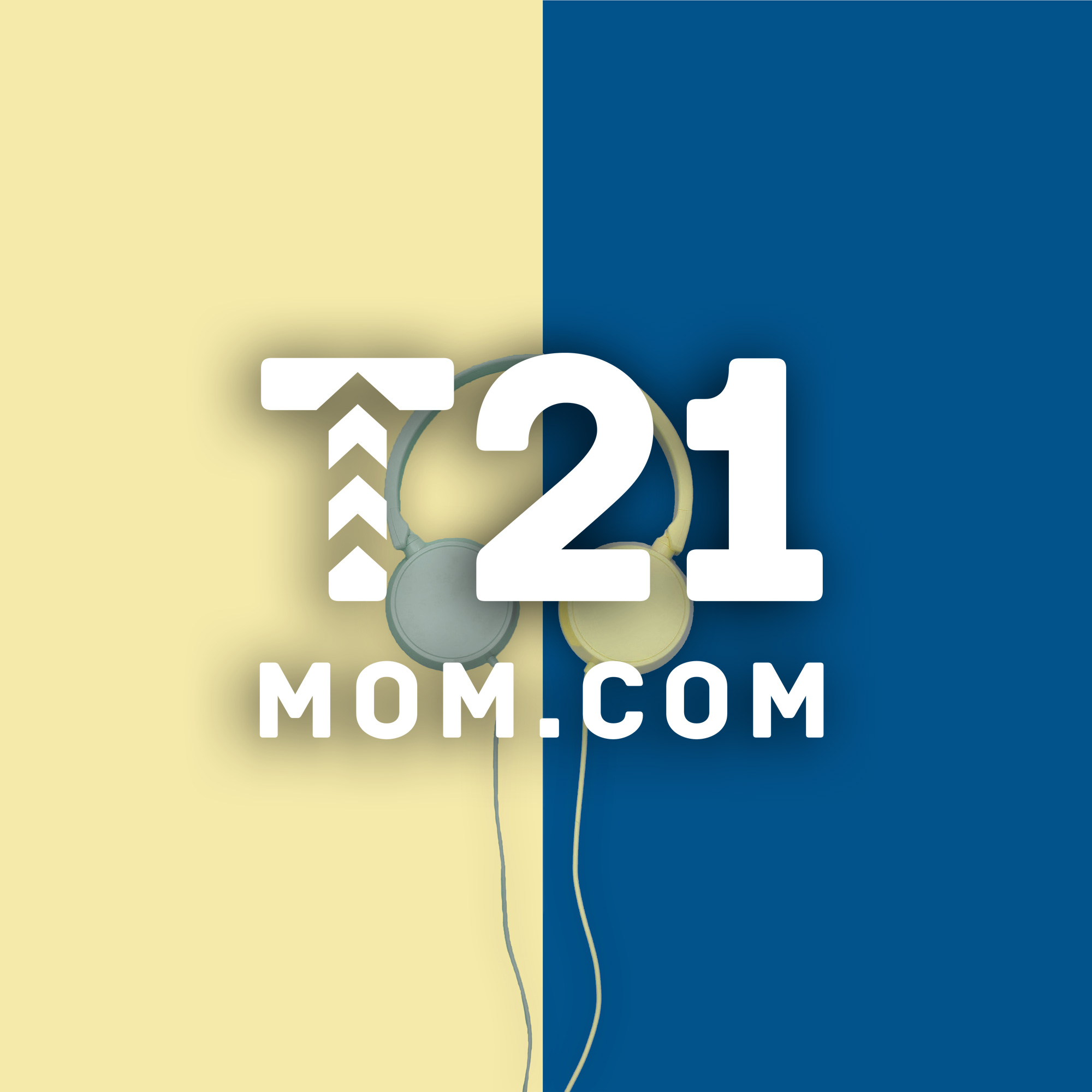
T21Mom-A Down Syndrome Podcast
T21Mom.com
The Collaborative IEP
Ashley Barlow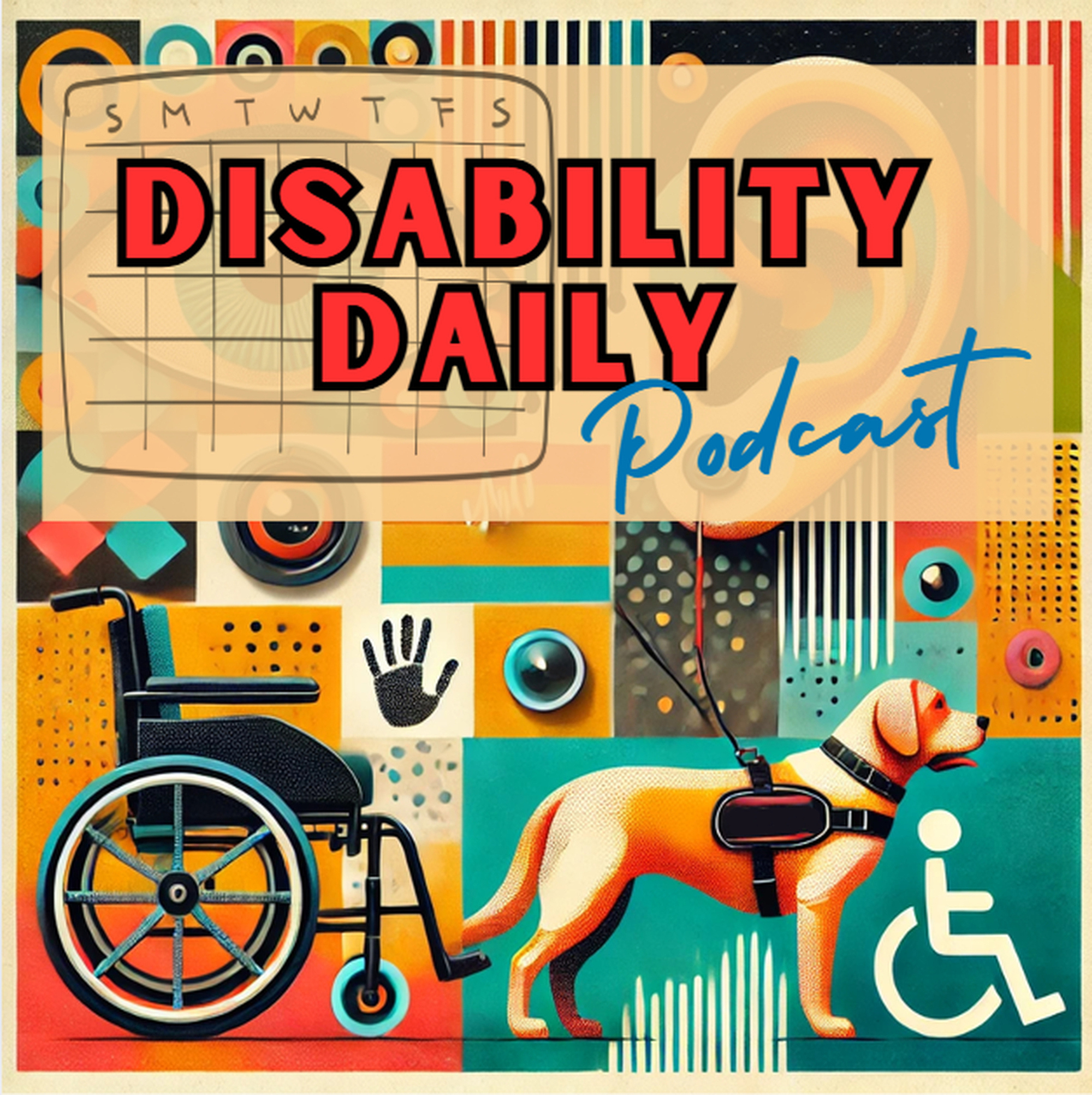
Disability Daily Podcast
Katie Healey, PhD, CPACC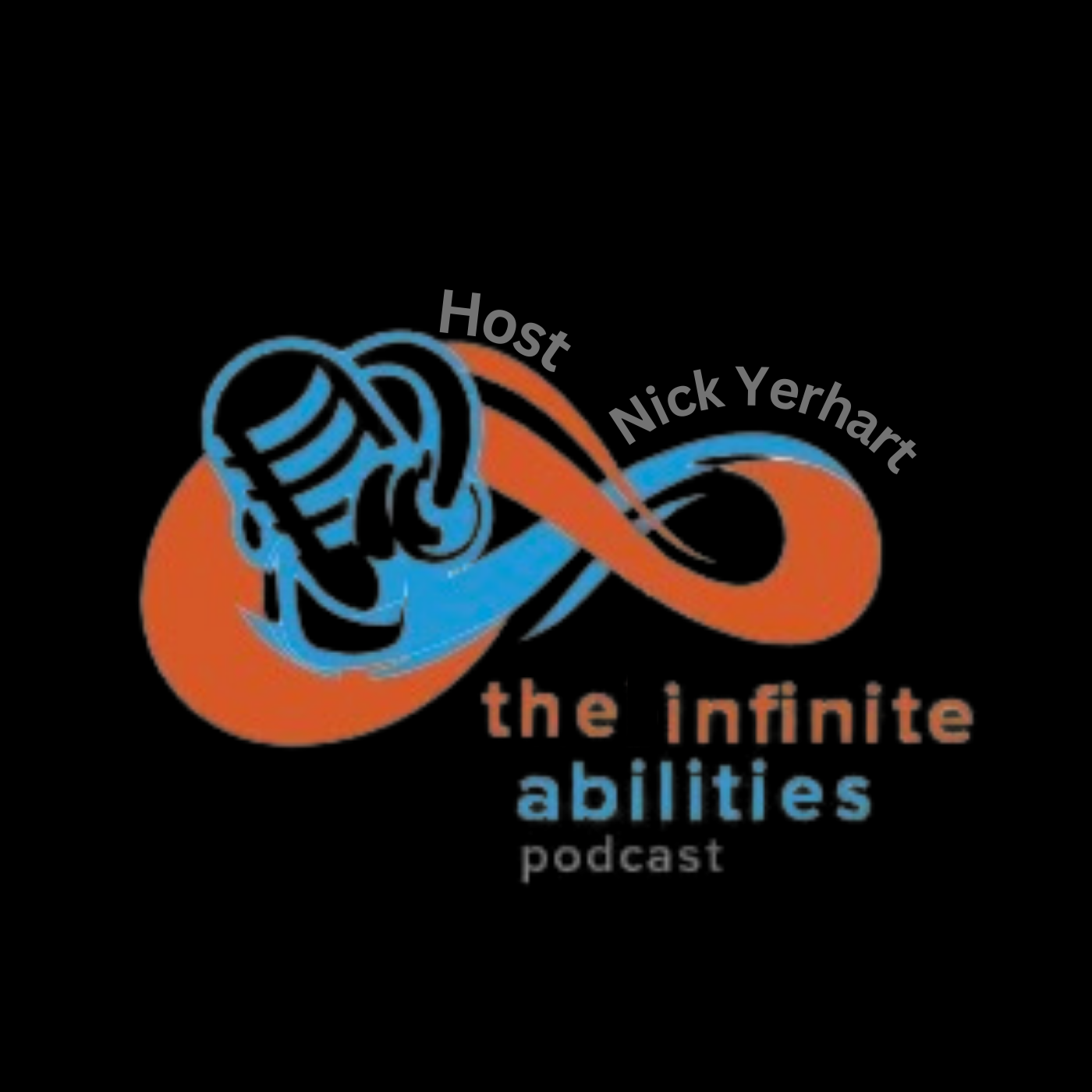
The Infinite Abilities Podcast
Nick Yerhart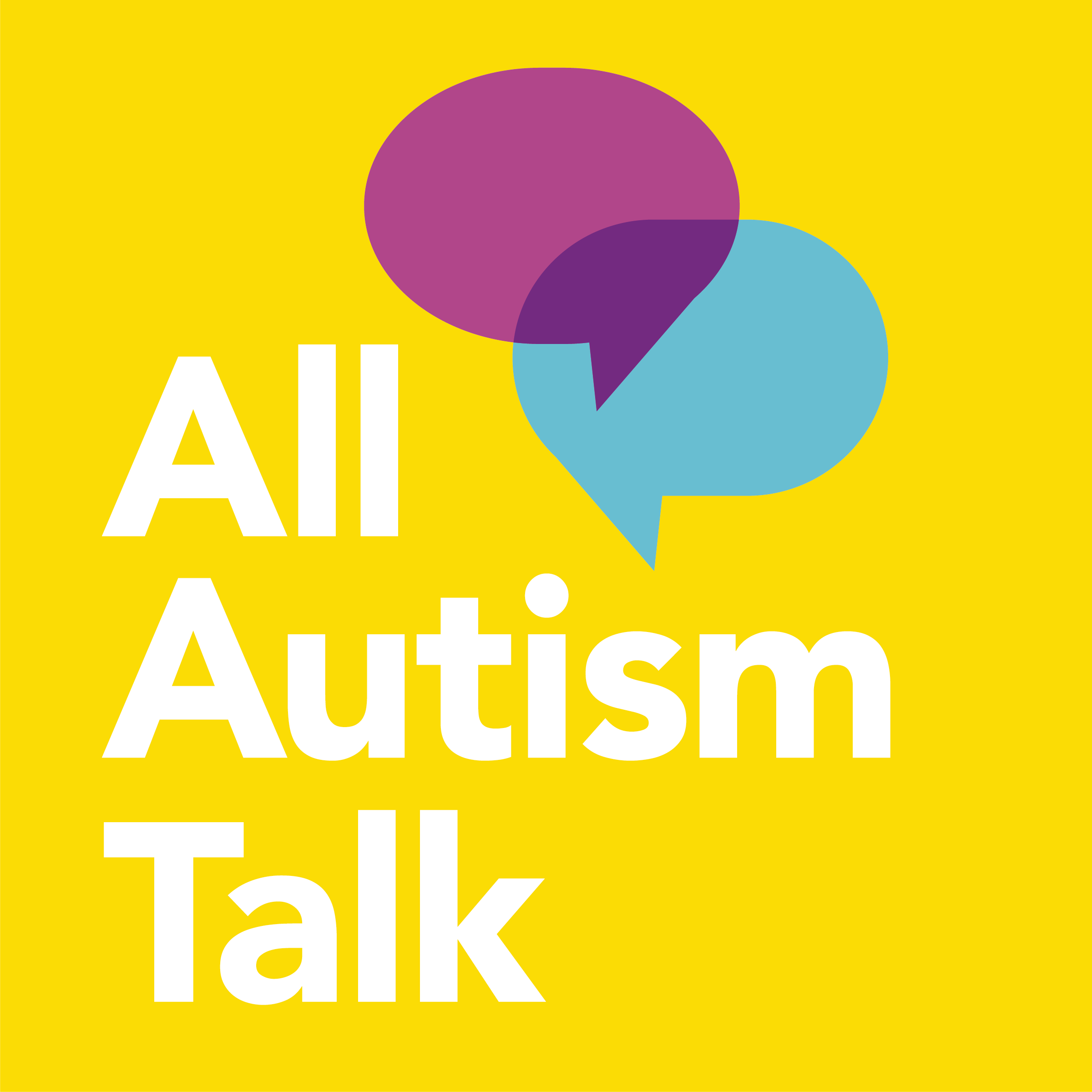
All Autism Talk
All Autism Talk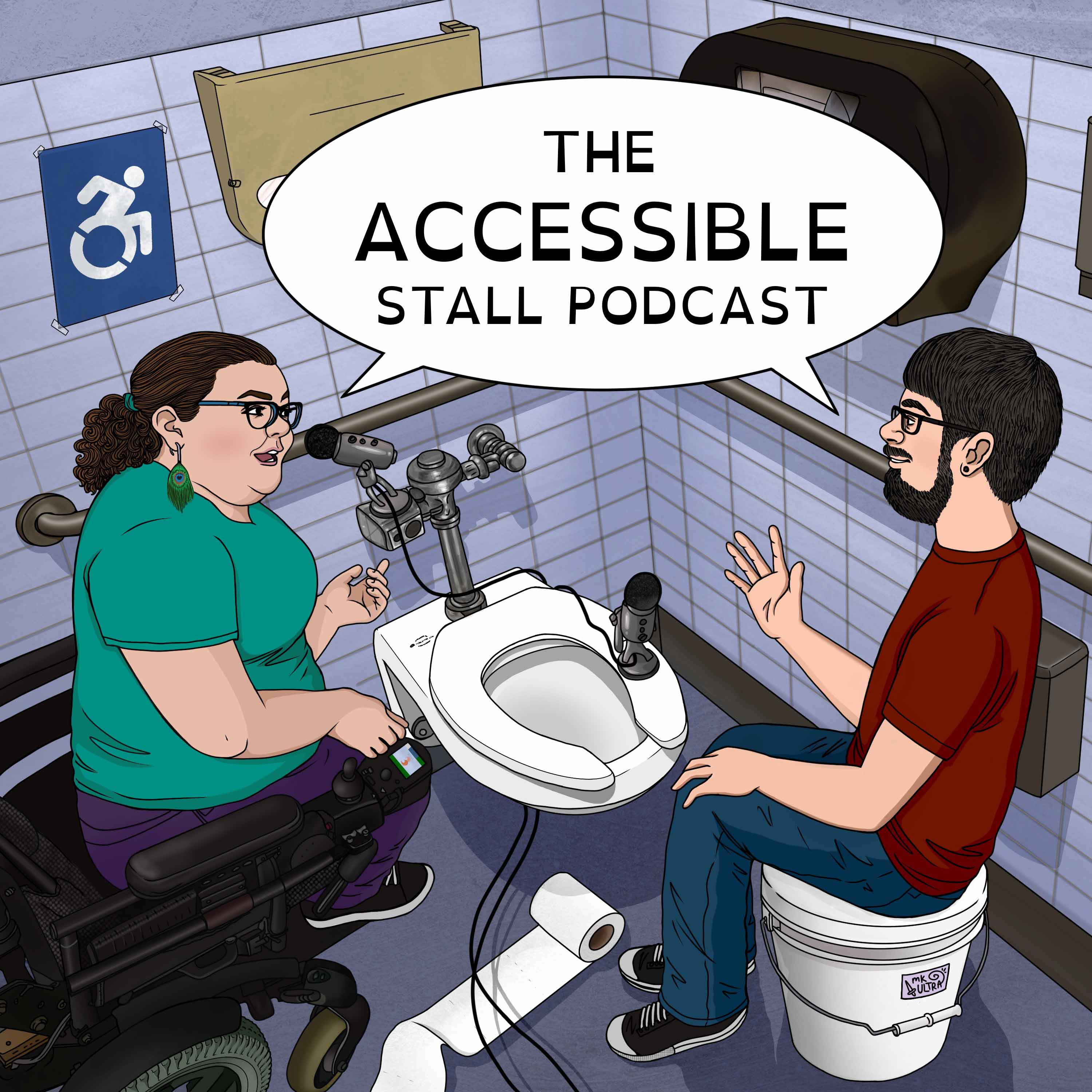
The Accessible Stall
Kyle Khachadurian and Emily Ladau
Disability Deep Dive
Disability Rights Florida
STAY Tuned: Supporting Transition-Age Youth with mental health conditions
STAY Tuned at Transitions to Adulthood Center for Research
Moms Talk Autism Podcast
Shannon Korza, Brittney Crabtree, Tash Dillmon, and Jean Mayer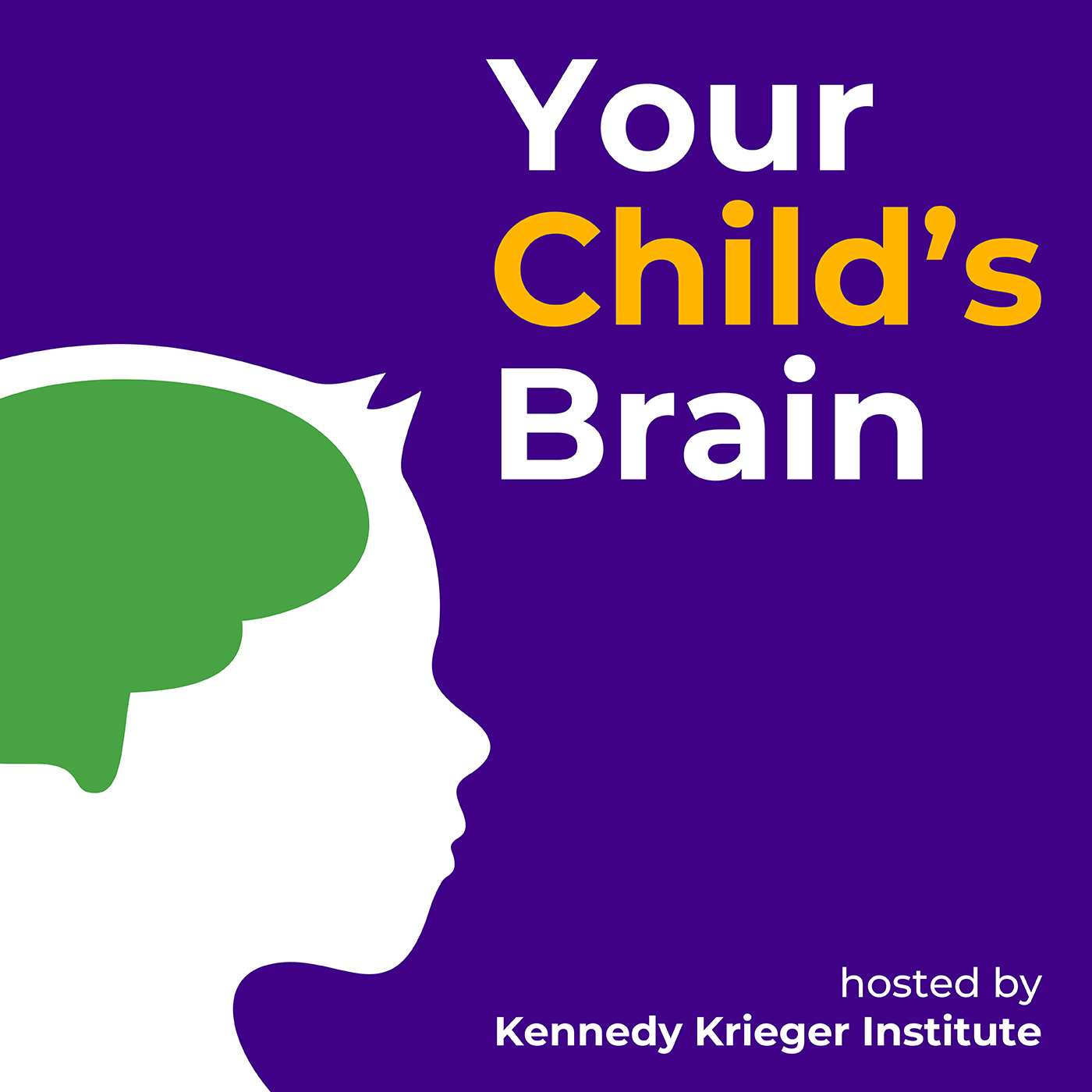
Your Child's Brain
WYPR Baltimore



